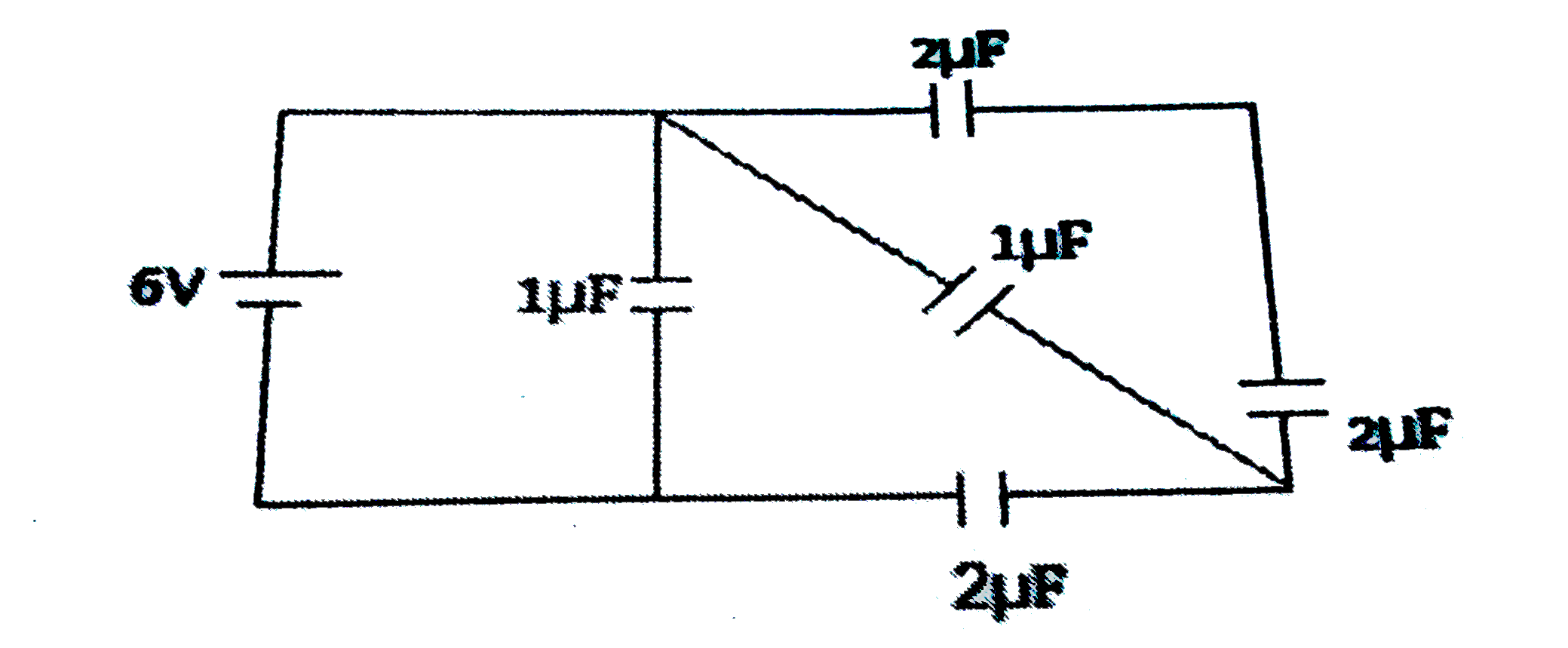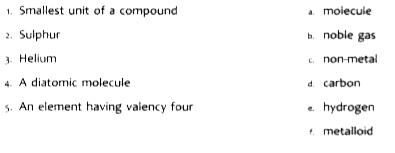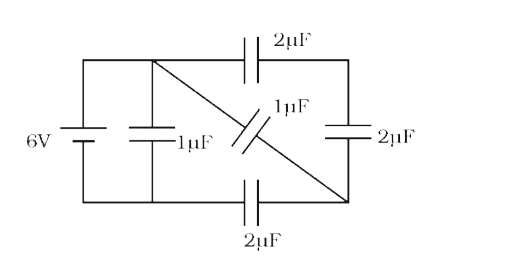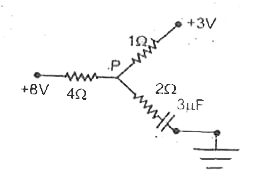STATEMENT 1: Energy stored in the capacitor is less than the energy battery during the charging of capacitor. because
STATEMENT-2: Some of the energy is converted into heat.
Statement-1 is True , Statement-2 is True , Statement-2 is a correct explanation for Statement-1.
Statement-1 is True , Statement-2 is True , Statement-2 is NOT a correct explanation for Statement-1.
Statement-1 is True , Statement-2 is False
Statement-1 is False , Statement-2 is True
The correct Answer is:A
To solve the question, we need to analyze the two statements provided:
Statement 1: Energy stored in the capacitor is less than the energy provided by the battery during the charging of the capacitor.
Statement 2: Some of the energy is converted into heat.
1. Understanding the Energy Stored in a Capacitor:
The energy (U) stored in a capacitor with capacitance C and voltage V is given by the formula:
U=12CV2
2. Understanding the Energy Provided by the Battery:
When a battery provides charge Q to the capacitor, the work done (W) by the battery is given by:
W=Q⋅V
Since the charge Q on the capacitor is related to capacitance and voltage by Q=CV, we can substitute this into the work done:
W=CV⋅V=CV2
3. Comparing the Two Energies:
Now we compare the energy stored in the capacitor and the energy provided by the battery:
- Energy stored in the capacitor: U=12CV2
- Energy provided by the battery: W=CV2
From this, we can see that:
W−U=CV2−12CV2=12CV2
This shows that the energy provided by the battery is greater than the energy stored in the capacitor.
4. Understanding Energy Loss:
The difference in energy 12CV2 represents the energy that is lost in the circuit, primarily due to resistive heating (Joule heating) in the wires and components during the charging process.
5. Conclusion:
- Statement 1 is true: The energy stored in the capacitor is indeed less than the energy provided by the battery.
- Statement 2 is also true: The energy loss due to heat explains why the energy stored in the capacitor is less than the energy supplied by the battery.
Final Answer:
Both statements are true, and Statement 2 provides the correct explanation for Statement 1.
---
The energy (U) stored in a capacitor with capacitance C and voltage V is given by the formula:
U=12CV2
When a battery provides charge Q to the capacitor, the work done (W) by the battery is given by:
W=Q⋅V
Since the charge Q on the capacitor is related to capacitance and voltage by Q=CV, we can substitute this into the work done:
W=CV⋅V=CV2
Now we compare the energy stored in the capacitor and the energy provided by the battery:
- Energy stored in the capacitor: U=12CV2
- Energy provided by the battery: W=CV2
W−U=CV2−12CV2=12CV2
This shows that the energy provided by the battery is greater than the energy stored in the capacitor.
The difference in energy 12CV2 represents the energy that is lost in the circuit, primarily due to resistive heating (Joule heating) in the wires and components during the charging process.
- Statement 1 is true: The energy stored in the capacitor is indeed less than the energy provided by the battery.
- Statement 2 is also true: The energy loss due to heat explains why the energy stored in the capacitor is less than the energy supplied by the battery.
Both statements are true, and Statement 2 provides the correct explanation for Statement 1.
Similar Questions
Knowledge Check
Energies stored in capacitor and dissipated during charging a capacitor bear a ratio
A1:1B1:2C2:1D1:3
Find total energy stored in capacitors given in the circuit

View SolutionMatch the columns

View SolutionFind the total energy stored in the capacitors in the given network.

View SolutionSTATEMENT-1 : If the distance plates of a charged isolated capacitor increases, then the potential energy in the electric field of capacitor increases.
and
STATEMENT-2 : The energy stored in a capacitor is always directly proportional to separation between the plates.
View SolutionThe capacitors shown in figure. Is in steady state. The energy stored in the capacitor is

View SolutionSTATEMENT-1: The capacitance of the capacitor remains constant irrespective of the charge present on it. because
STATEMENT-2: Capacitance depends on the size and the shape of the capacitor and also on the surrounding medium.
View SolutionAn uncharged capacitor is connected in series with a resistor and a battery. The charging of the capacitor starts at t=0. The rate at which energy stored in the capacitor:-
View Solution

